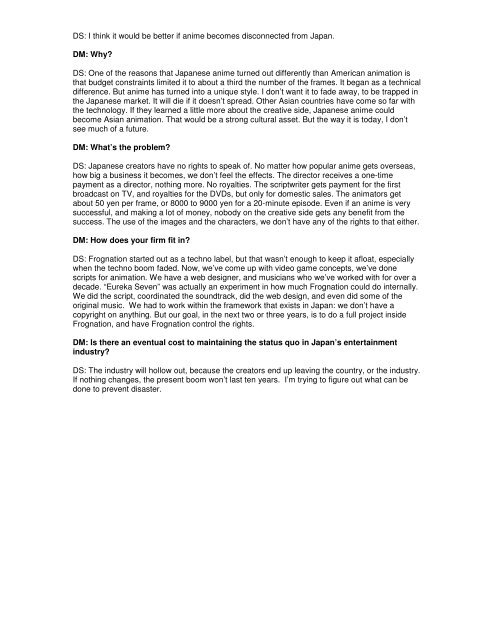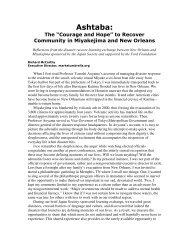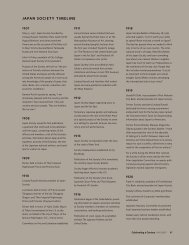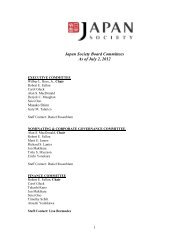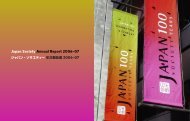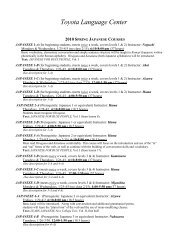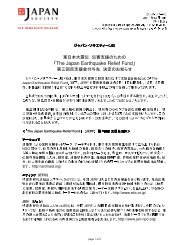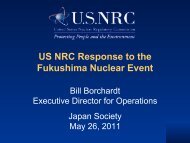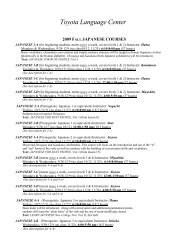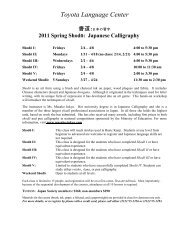Doug McGray's interview with anime screenwriter ... - Japan Society
Doug McGray's interview with anime screenwriter ... - Japan Society
Doug McGray's interview with anime screenwriter ... - Japan Society
You also want an ePaper? Increase the reach of your titles
YUMPU automatically turns print PDFs into web optimized ePapers that Google loves.
DS: I think it would be better if <strong>anime</strong> becomes disconnected from <strong>Japan</strong>.DM: Why?DS: One of the reasons that <strong>Japan</strong>ese <strong>anime</strong> turned out differently than American animation isthat budget constraints limited it to about a third the number of the frames. It began as a technicaldifference. But <strong>anime</strong> has turned into a unique style. I don’t want it to fade away, to be trapped inthe <strong>Japan</strong>ese market. It will die if it doesn’t spread. Other Asian countries have come so far <strong>with</strong>the technology. If they learned a little more about the creative side, <strong>Japan</strong>ese <strong>anime</strong> couldbecome Asian animation. That would be a strong cultural asset. But the way it is today, I don’tsee much of a future.DM: What’s the problem?DS: <strong>Japan</strong>ese creators have no rights to speak of. No matter how popular <strong>anime</strong> gets overseas,how big a business it becomes, we don’t feel the effects. The director receives a one-timepayment as a director, nothing more. No royalties. The scriptwriter gets payment for the firstbroadcast on TV, and royalties for the DVDs, but only for domestic sales. The animators getabout 50 yen per frame, or 8000 to 9000 yen for a 20-minute episode. Even if an <strong>anime</strong> is verysuccessful, and making a lot of money, nobody on the creative side gets any benefit from thesuccess. The use of the images and the characters, we don’t have any of the rights to that either.DM: How does your firm fit in?DS: Frognation started out as a techno label, but that wasn’t enough to keep it afloat, especiallywhen the techno boom faded. Now, we’ve come up <strong>with</strong> video game concepts, we’ve donescripts for animation. We have a web designer, and musicians who we’ve worked <strong>with</strong> for over adecade. “Eureka Seven” was actually an experiment in how much Frognation could do internally.We did the script, coordinated the soundtrack, did the web design, and even did some of theoriginal music. We had to work <strong>with</strong>in the framework that exists in <strong>Japan</strong>: we don’t have acopyright on anything. But our goal, in the next two or three years, is to do a full project insideFrognation, and have Frognation control the rights.DM: Is there an eventual cost to maintaining the status quo in <strong>Japan</strong>’s entertainmentindustry?DS: The industry will hollow out, because the creators end up leaving the country, or the industry.If nothing changes, the present boom won’t last ten years. I’m trying to figure out what can bedone to prevent disaster.


